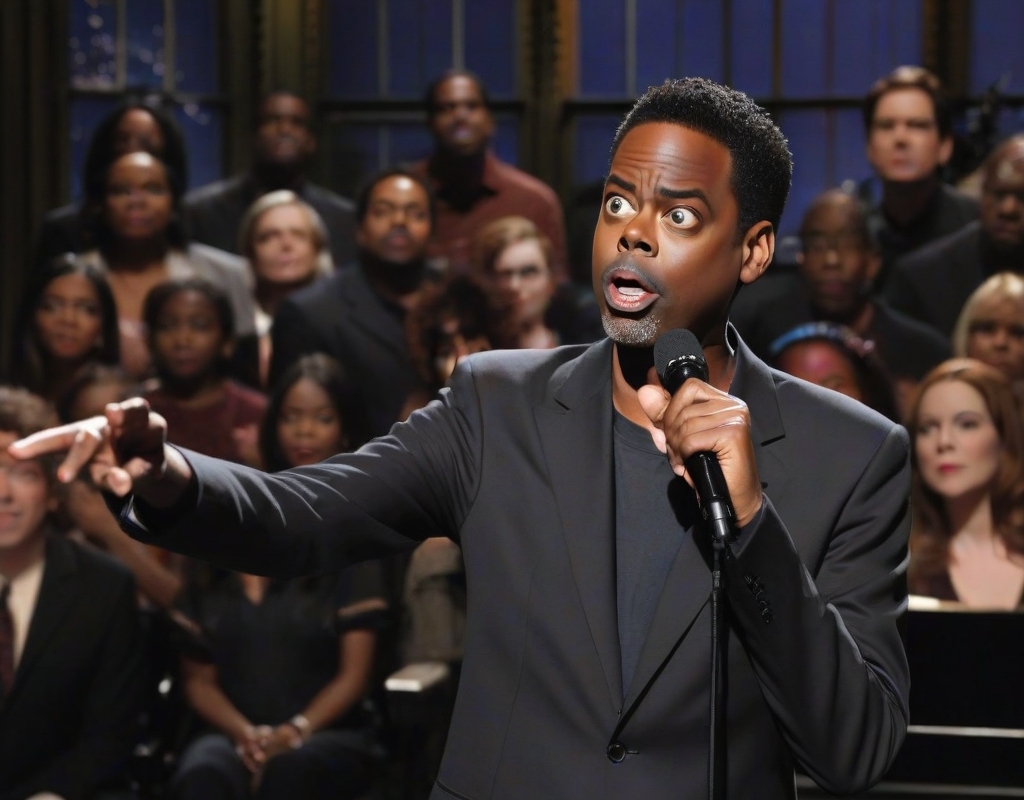In a recent episode of Saturday Night Live, the ever-provocative comedian Chris Rock delivered a monologue that has stirred significant public discourse. Lasting around seven minutes, Rock’s performance tackled some seriously contentious issues, including the arrest of Luigi Mangione, a suspect in the murder of UnitedHealthcare CEO Brian Thompson. Rock’s sharp humor, which blends incisive social critique with his distinct comedic flair, has once again placed him at the epicenter of conversation regarding the boundaries of comedy in light of unfolding national tragedies.
During the segment, Rock made particularly bold comments about public and media responses to Mangione’s appearance, remarking on the noticeable preoccupation with his attractiveness. He quipped, “Everybody’s fixated on how good-looking this guy is,” before delivering a punchline that underscored the sometimes awkward intersection of media sensationalism and justice: “If he looked like Jonah Hill, no one would care. They’d have given him the chair already. He’d be dead.” While this bold juxtaposition drew laughter from some, others perceived it as overly insensitive, especially given that it was made in the context of a homicide case.
The monologue was not devoid of empathy; Rock acknowledged the profound losses experienced by Thompson’s family, saying, “He actually killed a man—a man with a family, a man with kids. I have condolences for the healthcare CEO. This is a real person, you know?” However, his subsequent remark, “But you also got to go, ‘You know, sometimes drug dealers get shot,'” introduced a stark contrast, embodying the complex duality of sympathy versus satire defining Rock’s style; it both engenders broader discussion and sharp criticism about where humor should draw the line amidst genuine suffering.
In understanding Rock’s audacious quips, the background of the Mangione case is pivotal. Charged with the slaying of a prominent figure in healthcare, Mangione attracted significant media attention, partly fueled by his striking appearance—a focus Rock leveraged for satirical commentary, reflecting the societal preoccupation with aesthetics even in severe circumstances.
The interplay of physical appearance and criminal perception isn’t new. Recall the infamy of Ted Bundy, whose charm distorted public perceptions, invoking an uncomfortable, sometimes sympathetic fixation. This societal behavior raises significant questions regarding media representation and its influence on both judicial proceedings and public consciousness, a point Rock’s humor lightly taps into.
Pushing into political commentary, Rock also broached the topic of former President Donald Trump, blending satire and incredulity by reflecting on Trump’s ability to navigate a year filled with personal legal victories and societal polarizations. Rock’s joke about Trump having been named ‘Time’ man of the year could almost be read as a gritty prophecy in the guise of jest, spotlighting his fearless engagement with contentious political topics.
Balancing out the weight of Rock’s monologue, Adam Sandler’s return to SNL, after years of absence, provided a comedic breather. His participation in a skit about a surgical mishap offered momentary relief from heavier discussions prompted by Rock’s performance, showcasing SNL’s traditional blend of humor types and thematic range.
Critics and viewers alike have voiced mixed reactions to Rock’s portrayal of sensitive topics. While some commend his fearless honesty and sharp intellect, others argue that certain subjects, particularly those involving tragedy, should be handled with more sensitivity. This polarity highlights the complex terrain modern comedians navigate: balancing humor with respect, provocation with tact.
Expert analysis from figures like Samantha Rue, a professor from the University of Chicago specializing in comedy, and cultural critic Leo Martinez, illuminates these tensions. Rue suggested that Rock’s act typifies the inherent challenge in comedy: inciting reflection without crossing lines of decency. Martinez, on the other hand, acknowledged the classical role of comedy in pushing societal boundaries, noting the thin line where constructive commentary risks sliding into offense.
In synthesis, Chris Rock’s latest jests on SNL are reflective of the ongoing debate about the role of humor in addressing societal truths and grievances. His monologue serves not only to entertain but also to challenge viewers to reconsider their perceptions of where comedy can and should venture, especially in contexts saturated by real-world implications. As humor continuously evolves, its intersection with cultural sensitivities remains a pressing dialogue, framed perfectly by Rock’s contentious yet undeniably compelling performance.
In essence, Rock’s approach to comedy—walking the tightrope between offensive and enlightening—remains a powerful mirror to society’s complexities, eliciting necessary dialogues about the balancing act between laughter and respect in a world fraught with both tragedy and absurdity.




